Roofing for mobile homes is often an overlooked aspect of home maintenance, yet it plays a crucial role in protecting your investment and ensuring the longevity of your residence.
This article provides an extensive overview of materials and approaches to roofing for mobile homes, giving you the knowledge to make wise choices.
In this blog post, we’ll take a look at different materials such as aluminum, asphalt shingles, TPO roofing and more alternative options like rubber coatings and metal pitched roofs to help you make an informed decision.
We’ll also delve into alternative options like rubber coatings, composition shingles,and metal-pitched roofs. Roof-over methods will be examined closely along with their respective pros and cons.
Moreover, we understand that DIY vs professional installation can be a daunting choice. To assist you in making an educated decision regarding which route is best suited for your circumstances, we’ll discuss factors affecting cost-effectiveness between self-installation versus hiring professionals while taking disposal costs related to old materials into account.
To round off our discussion on roofing for mobile homes, we’ll touch upon essential factors influencing material choices including budget considerations, climate suitability, and maintenance requirements – all aimed at helping you achieve the perfect balance between aesthetics and functionality for your roof for mobile homes.
Table of Contents:
- Types of Materials for Mobile Homes
- Alternative Roofing for Mobile Homes Options
- Complete Replacement vs. “Roof Over” Installation Methods
- Popular Choices Among Mobile Home Owners Across the Nation – Metal Roofs Explained in Detail.
- DIY Roof Replacement vs. Hiring a Professional: The Ultimate Guide
- Choosing the Right Material Based on Climate Conditions
- FAQs in Relation to Roofing for Mobile Homes
- Conclusion
Types of Roofing Materials for Mobile Homes
When it comes to roofing for mobile homes, homeowners have several options to consider. Roofing for mobile homes can be constructed with aluminum, asphalt shingle, or thermoplastic polyolefin (TPO) materials. Let’s examine the advantages and disadvantages of each material in detail.
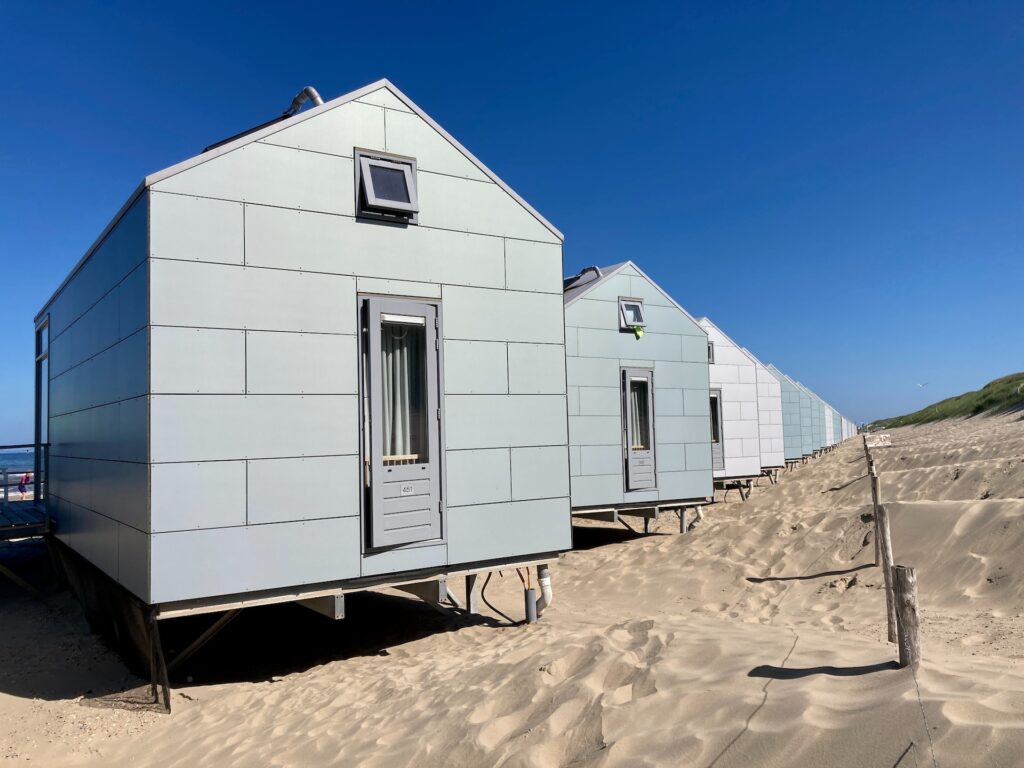
Aluminum Roofing: Lightweight but Lacking Insulation
Aluminum is a popular choice for an older mobile home due to its lightweight nature. This type of roof can be easily installed without putting too much stress on the pre-existing roof structure. However, aluminum lacks insulation TPO roofing may be a better option if you’re seeking enhanced energy efficiency compared to aluminum.
TPO Roofing: Flexible, Durable and Energy-Efficient
Thermoplastic Polyolefin (TPO) material offers flexibility and durability, making it an excellent option for flat roofs or bowed roofs in newer manufactured homes. Besides being resistant to UV rays and weather-related damage, TPO also provides better energy efficiency compared to other materials like aluminum or asphalt shingle.
Asphalt Shingle: Waterproof Protection with Long Lifespan
Last but not least – asphalt shingle roofing. This popular material has been employed in residential roofing for many years, and mobile home is no exception. Asphalt shingle offers waterproof protection and a long lifespan, making them an excellent choice for peaked roofs or older homes that require replacement of the roof.
Now that you’re familiar with the main types of materials available for a mobile home, don’t forget to consider factors like durability, energy efficiency, and cost before making your final decision. Learn more about roofing for mobile homes repair here.
Alternative Roofing for Mobile Homes Options
Alright, let’s dive into some lesser-known roofing options.
Beyond the usual suspects like aluminum, asphalt shingle, and TPO membrane roofs, there are a few alternative materials that could be perfect for your mobile home.
We’re talking about rubber EPDM liquid coatings, metal-pitched rooftops (steel or tin), and white PVC single-ply membranes.
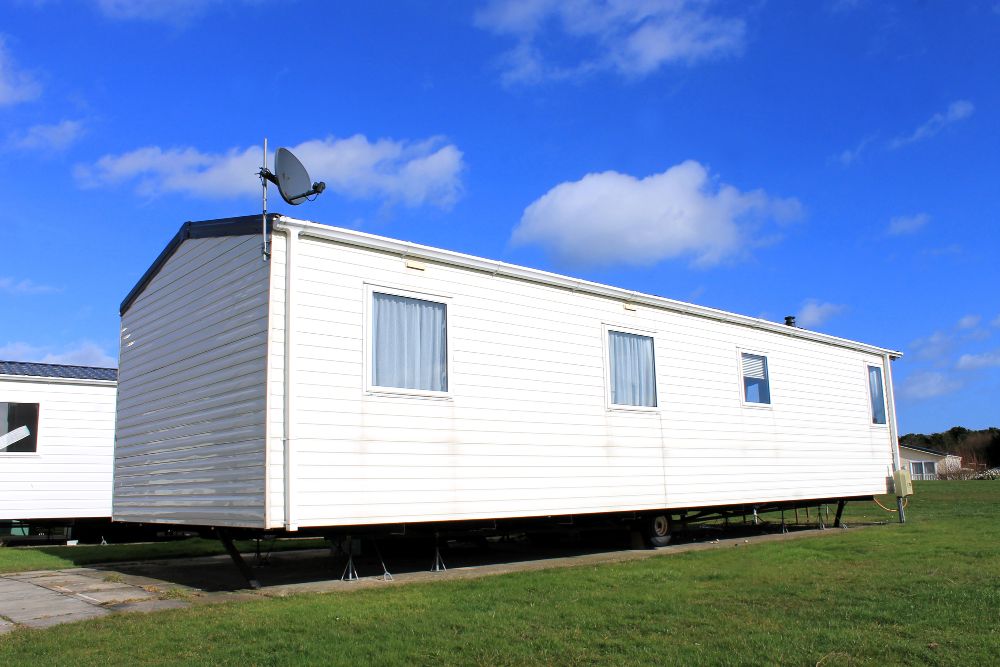
Rubber EPDM Liquid Coating Applications
First up is rubber EPDM liquid coating, which can provide excellent waterproof protection when applied to an existing roof surface. This material is especially useful in older mobile homes with flat or bowed roofs that need an extra layer of defence against leaks and water damage.
Metal Pitched Steel/Tin Rooftops
Next on our list: metal-pitched steel/tin rooftops. Apart from their sleek appearance, these metal roofs offer durability and energy efficiency while being relatively lightweight compared to other materials.
Their main drawback? They can be noisy during heavy rain or hailstorms – but hey, no one said perfection was easy.
White PVC Single-Ply Membranes
Last but not least: white PVC single-ply membranes. This lightweight, pliable substance that can be laid over an existing rooftop or employed in a new construction job is what white PVC single-ply membranes offer. This option is particularly popular in regions with extreme temperature fluctuations due to its excellent insulation properties and resistance to UV rays.
So there you have it. A few alternative materials for a mobile home might just be the perfect fit for your unique needs and preferences. Always consider factors like budget constraints, local climate conditions, and personal taste when making your final decision.
Complete Replacement vs. “Roof Over” Installation Methods
Now that we understand the two main installation methods, let’s examine mobile home roofing in more detail.
When it comes to repairing or replacing your roof, you have two main options: a complete replacement or a “roof over” installation.
Let’s break down these methods and their pros and cons so you can make an informed decision for your mobile home:
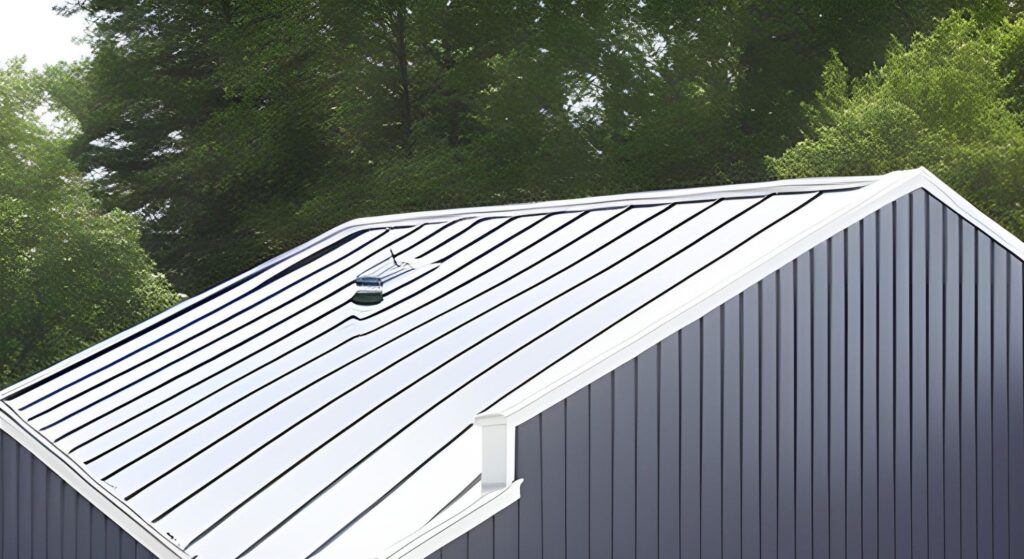
Pros and Cons of Complete Replacement of Roof
A complete replacement of roof involves removing all pre-existing roofing materials before installing new ones. This method ensures that any underlying issues are addressed, providing a fresh start for your new roof. It may cost more upfront, but it often results in longer-lasting performance with fewer future repairs needed.
Advantages/Disadvantages Associated with “Roof Over” Installations
The alternative is the “roof over“, which means adding another layer on top of the existing one without removing anything first. This method may be less expensive and quicker; however, potential problems might remain hidden beneath layers leading to more significant issues later on.
In addition, extra weight from multiple layers could cause structural concerns if not properly assessed beforehand – always consult professionals when considering this route. To sum up: both approaches come with respective benefits/drawbacks that need careful evaluation before deciding on the best course of action for your mobile home’s roof.
Take into account factors like budget, time constraints, and existing roofing conditions when making your decision.
Need more guidance? Check out our comprehensive guide to mobile home roof repair here.
Popular Choices Among Mobile Home Owners Across the Nation – Metal Roof Explained in Detail.
So, you’re considering a metal roof for your mobile home? Great choice. Let’s dive into why these roofs are gaining popularity and what to watch out for.
Benefits of a Metal Roof for Mobile Homes
Metal roof systems offer several advantages over traditional materials. Their lightweight nature means less stress on your home’s structure, making them perfect for older mobile homes.
They can be installed within just one or two days, saving time and labor costs. Bonus: They also require minimal maintenance and boast long-lasting performance.
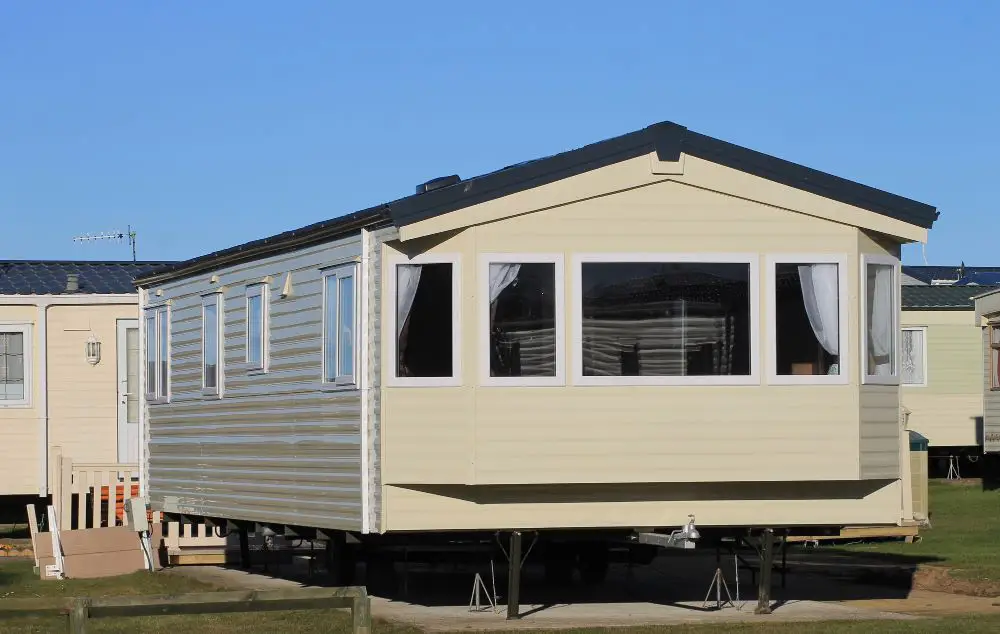
Potential Drawbacks and Concerns with Metal Roofing
No material is perfect, so let’s address some potential issues with a metal roof. One concern is their susceptibility to denting from heavy rainfall or hail storms.
Ouch. If energy efficiency is high on your priority list, know that while some metal roof has reflective coatings, others may not provide the best insulation compared to alternative options like TPO or asphalt shingle.
In addition, it’s essential to ensure proper installation as improper techniques could lead to leaks or other damage down the line. To avoid this headache (and potential heartache), consider hiring a professional roofer experienced in working with metal roofing for mobile homes. To ensure the longevity of your metal roof, regular inspections of fasteners and sealants should be conducted.
In summary: A metal roof can be a fantastic option for your mobile home if you’re aware of potential drawbacks and take steps to address them.
Now that you have the lowdown on metal roof, you’re one step closer to making an informed decision. Happy roofing.
Key Takeaway:
Metal roof is are a popular choice for mobile homes due to their lightweight nature, quick installation time, and minimal maintenance. However, they may be susceptible to denting and require proper installation and occasional maintenance of fasteners and sealants. Hiring an experienced professional roofer can help address potential issues with metal roofing.
DIY Replacement of Roof vs. Hiring a Professional: The Ultimate Guide
Alright, let’s dive in.
Before we explore the pros and cons of DIY replacement of roof versus hiring a professional, let’s discuss some key factors to consider when making this important decision for your mobile home.
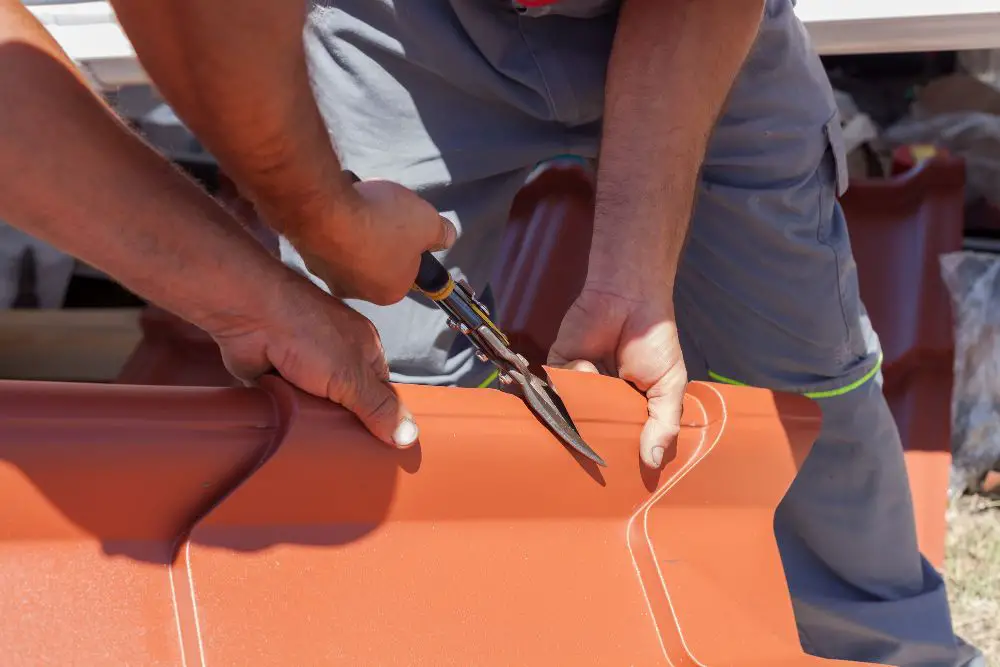
We’ve got you covered with this comprehensive guide:
Factor #1: Evaluating the material. Certain materials like TPO are easier for homeowners to install themselves, while others may require expert help for proper installation.
If you’re dealing with mobile home roofs, it’s important to consider the pre-existing roof and the materials that will be used for the replacement. Some popular options include flat roofs, metal roofs, rubber roofing, and liquid roofing.
Factor #2: Labor involved. Considering the amount of labor needed can help decide if attempting the project is achievable or if it’s better to hire an experienced roofer.
For older homes, bowed roofs or peaked roofs may require more labor and expertise to replace.
Factor #3: The disposal process. Properly disposing of old roofing components is crucial; understanding local regulations and requirements will ensure responsible waste management practices are followed.
This is especially important if you’re dealing with hazardous materials like asbestos.
Moving on.
In addition to these factors, there are several advantages and disadvantages associated with both DIY and professional installations that should be considered before making any final decisions accordingly.
Advantages of DIY Replacement of Roof
- Potential cost savings by avoiding labor expenses from hiring professionals.
- A sense of accomplishment from completing a major home improvement project independently.
Disadvantages of DIY Replacement of Roof
- Risk of improper installation leading to leaks or other issues down the line due to lack of expertise/experience working with specific materials (e.g., metal roof, liquid roofing).
- Potential for personal injury during the installation process if proper safety precautions are not taken into account beforehand.
Advantages of Hiring a Professional
- Expertise in handling various materials ensures proper installation, minimizing future problems related to leaks or structural damage.
- Access to specialized equipment/tools necessary to complete the job efficiently and effectively without causing further harm to the property itself or the course of work undertaken hereon.
Disadvantages of Hiring a Professional
- Potentially higher overall costs due to labor and service fees associated with professional installations.
- Limited control over the project timeline and potential delays caused by contractor scheduling conflicts or other unforeseen circumstances.
Ready to make an informed decision? Weigh the pros and cons carefully, consider your budget, skillset, and local regulations before embarking on your mobile home replacement of roof journey.
If you’re looking for roofing materials, some popular options include asphalt shingle roofing, composition shingles, and metal roofing. Don’t forget to add a waterproof layer to protect your home from leaks and water damage.
Key Takeaway:
This section provides a guide for individuals considering DIY roof replacement versus hiring a professional for their mobile home. Factors to consider include evaluating the material, assessing labor involved, and understanding proper disposal processes.
The advantages of DIY include potential cost savings and a sense of accomplishment, while the advantages of hiring a professional include expertise in handling various materials and access to specialized equipment/tools.
Choosing the Right Material Based on Climate Conditions
When it comes to roofing for a mobile home, selecting the right material is crucial. Your local climate plays a significant role in determining the ideal roofing system for your needs.
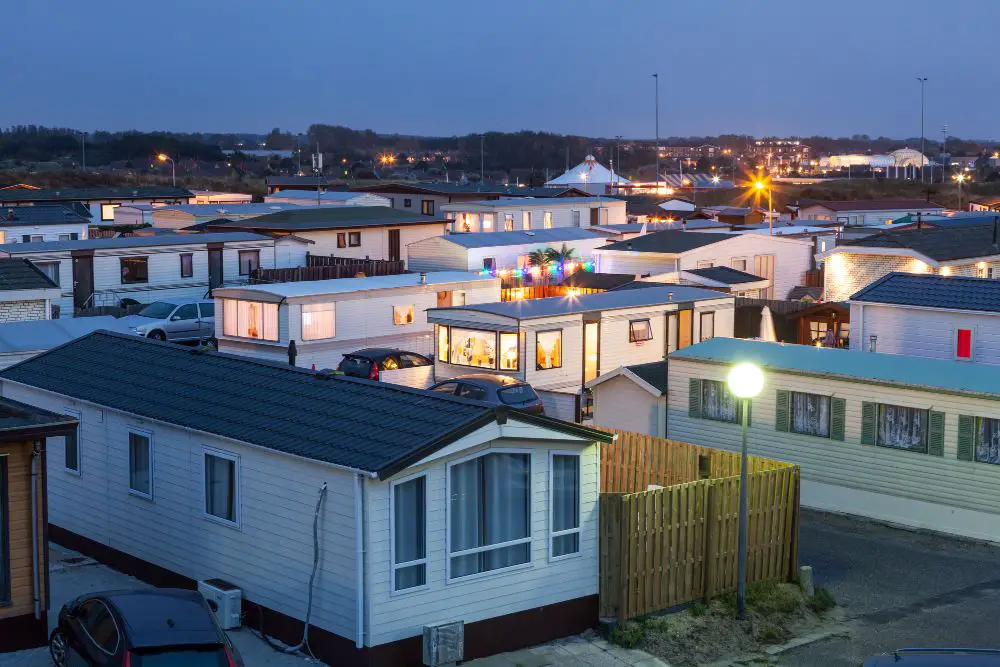
Different regions experience varying weather patterns, requiring specific types of rooftop systems to provide optimal protection against the elements. By carefully assessing these factors beforehand, you’ll be better equipped to make informed choices that result in improved durability and energy efficiency over time.
Assessing Local Weather Patterns and Their Effects on Various Materials
It’s essential to consider factors such as high winds, snowfall accumulation rates, and extreme temperature fluctuations when selecting your material. For areas with heavy snowfall, metal roof is a great option since they shed snow easily.
However, they may dent under hail or strong winds. Rubber roofing EPDM liquid coatings can withstand fluctuating temperatures but might not hold up well under constant exposure to direct sunlight or extreme heat conditions.
The Importance of Energy Efficiency Based on Regional Climates
Energy efficiency is another crucial factor to consider when selecting a roofing material. In warmer climates, it’s best to choose materials that reflect sunlight and reduce heat absorption. White PVC single-ply membranes or TPO roofing are excellent options that can help keep your mobile home cool during the hot summer months.
Cool roofs, which use reflective surfaces to lower roof temperatures by up to 50°F (28°C), can significantly reduce cooling costs. In colder climates where insulation is vital, asphalt shingles offer good thermal resistance while providing waterproof protection from rain and snow.
Bear in mind that opting for the appropriate material to suit your mobile home’s local climate will not only safeguard it from adverse weather conditions but also aid you in economizing energy costs over time.
FAQs in Relation to Roofing for Mobile Homes
What Type of Roof is Best for a Mobile Home?
The best type of roof for a mobile home depends on factors such as climate, budget, and personal preferences. Popular options include metal roof, TPO roofing, and asphalt shingle.
Metal roof is durable and energy-efficient, while TPO offers flexibility and durability. Asphalt shingle provides waterproof protection with a long lifespan.
How Long Does a Roof Last on a Mobile Home?
A typical mobile home roof can last anywhere from 15 to 30 years depending on the material used and maintenance practices. For example, metal roof has an average lifespan of 40-70 years while asphalt shingle typically lasts around 20-30 years if properly maintained.
Is it Worth Putting a Metal Roof on a Mobile Home?
Installing a metal roof on your mobile home can be worth the investment due to its durability, energy efficiency, low maintenance requirements, and a potential increase in property value. However, consider initial installation costs compared to other materials before making your decision.
How Can I Protect My Mobile Home Roof?
To protect your mobile home’s roof, conduct regular inspections for damage or leaks; clean gutters regularly; trim overgrown branches near the structure; apply protective coatings like rubber EPDM liquid coating when necessary; ensure proper ventilation systems are in place; perform routine maintenance based on manufacturer recommendations.
Roofing for Mobile Homes – Recap
Picking the ideal material for your roofing for mobile homes is essential in guaranteeing its long-term strength and defence from severe weather. From aluminum to TPO, there are various options available with different pros and cons to consider. Additionally, alternative roofing options like rubber coatings or metal-pitched roofs can provide a unique look while still offering durability.
When deciding between DIY installation or hiring professionals, it’s important to assess skill level and cost-effectiveness factors. Budget considerations, climate suitability, and maintenance requirements also play a role in choosing the best material for your mobile home.
Hi, I’m Jim. I was a roofing constructor for 20 years, before deciding to start myrooff.com and gather the best content about roofing. I love woodworking and construction and it was only natural for me to start this passion project of mine. Thank you for visitng.

